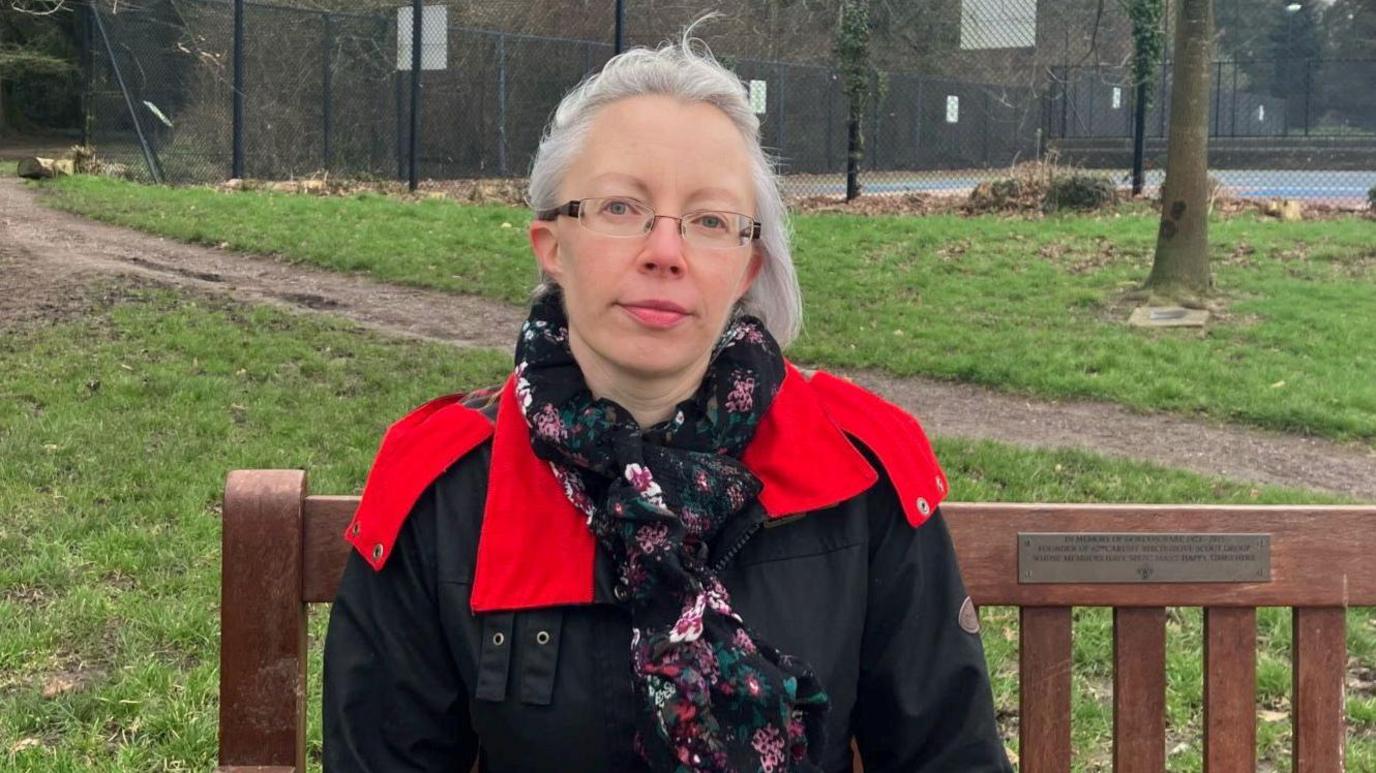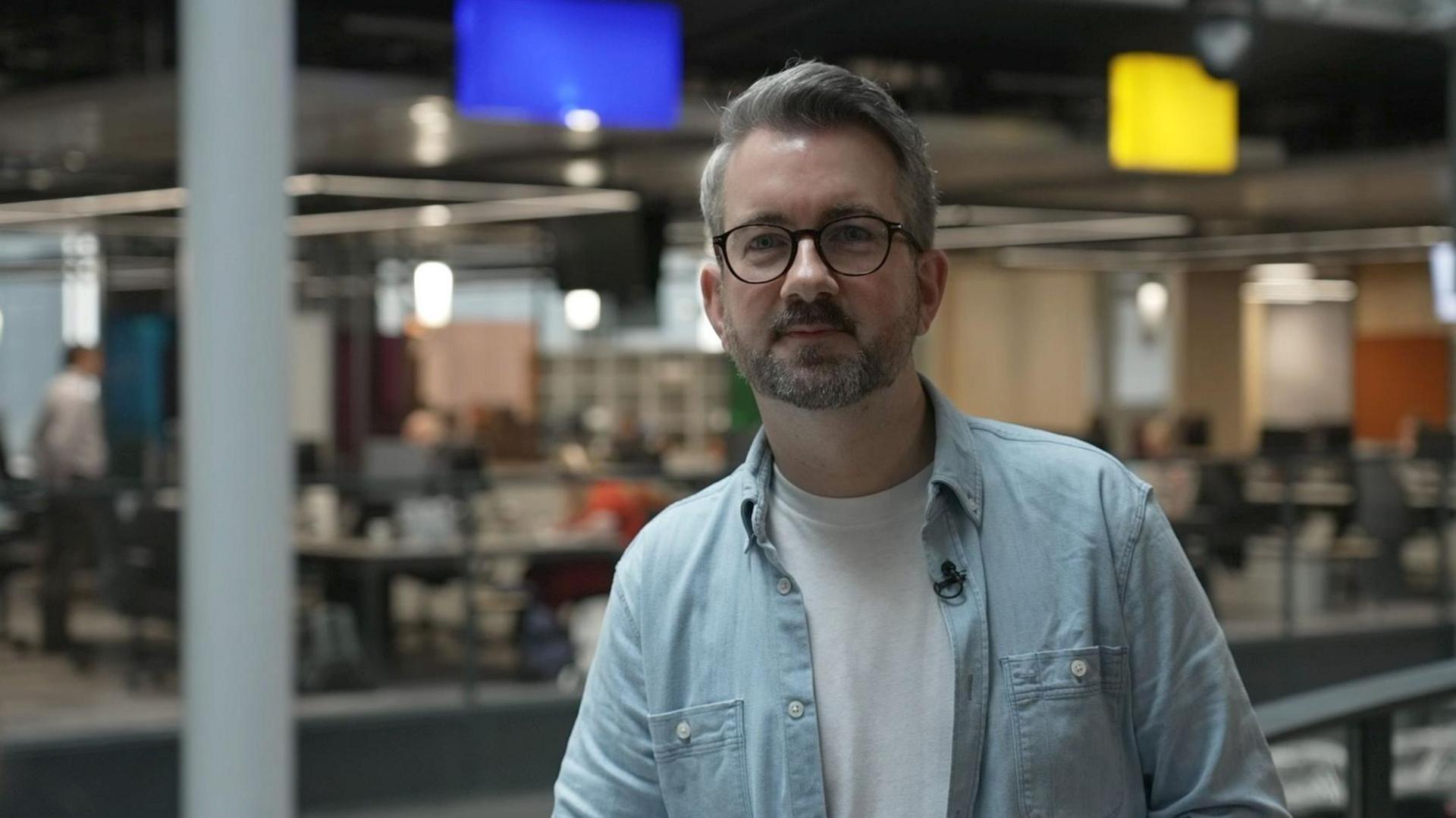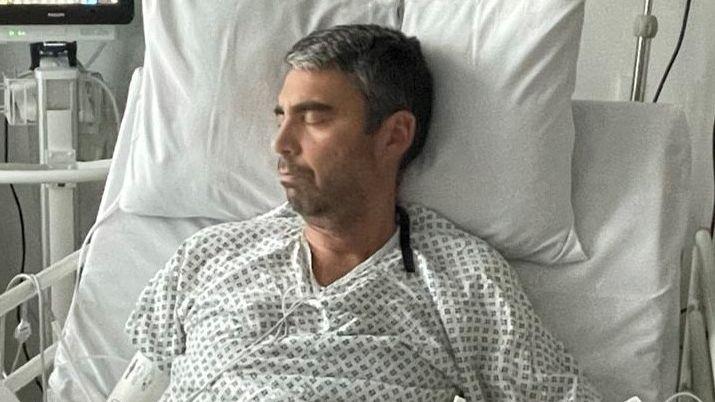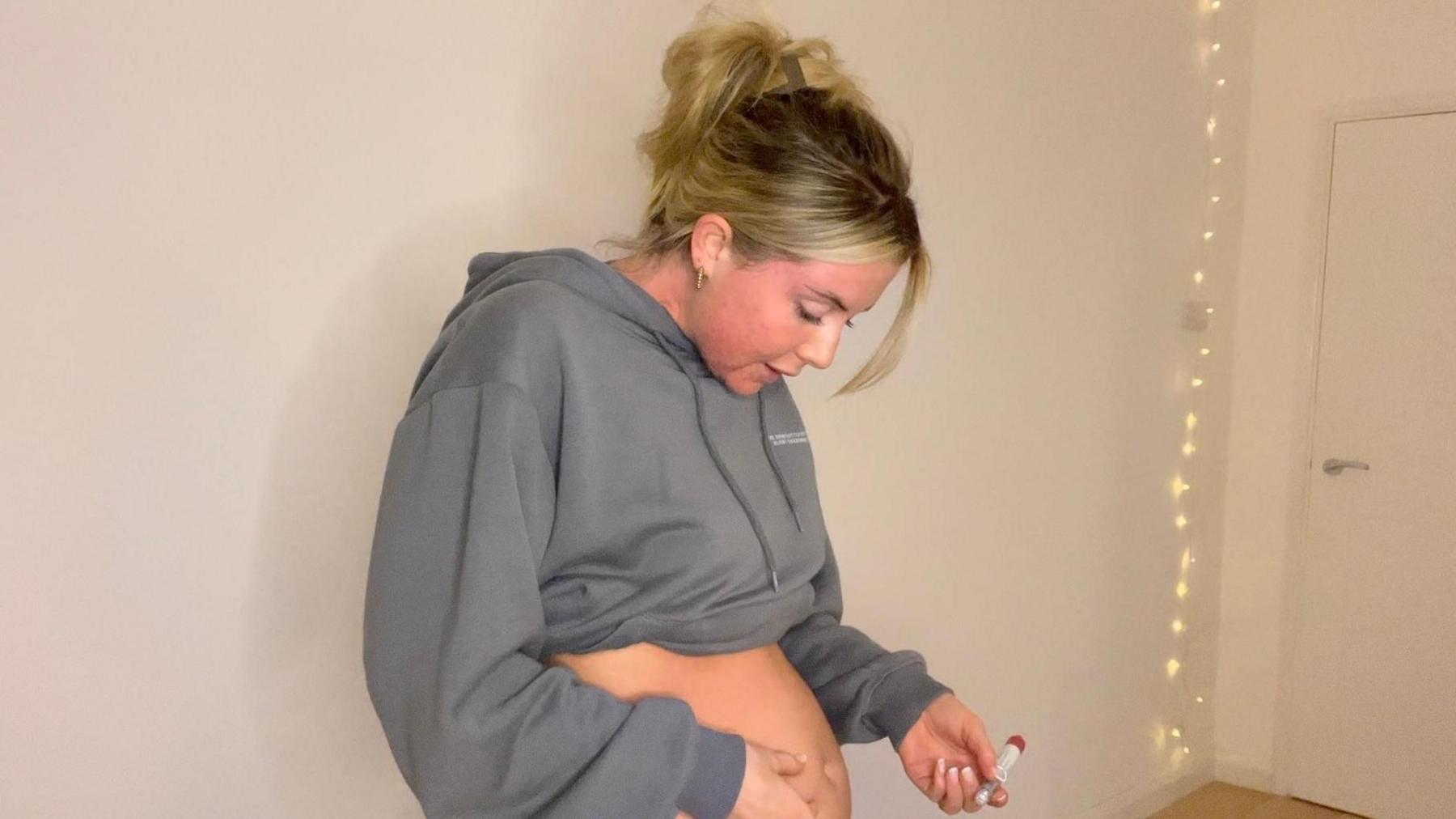'Insomnia was part of why I quit being a teacher'
An estimated one in 10 adults suffer from insomnia
- Published
Insomnia impacted Louise Mumford's life so much that it played a part in her giving up her job.
Up to one in 10 people live with the sleep disorder and Louise said it could "take the joy out of life a little bit".
The 44-year-old has had insomnia since childhood when Louise would stay up all night watching "terrible American crime dramas" with her mum because she couldn't sleep.
After 15 years working as a teacher, Louise left her job as she attempted to avoid a "very, very grim" future.
"The fact I didn’t have the energy to carry on teaching was a massive factor in giving up," said Louise, who lives in Cardiff with her husband, Jason.
"I was in a position where I could try and do something that fitted in with my sleep and allowed me to take the pressure off a little bit."

Louise Mumford has struggled with insomnia since she was a child
Louise always wanted to be a writer, so she left the classroom in April 2018 to pursue her dream and manage her own time to cope with the disorder.
“If I had not changed my life to work around my insomnia, I would definitely be struggling now,” she said.
“I'm so lucky that I had the opportunity to be able to make that change, lots of people don't have that opportunity.”
Research verified by The National Institute for Health and Care Excellence (NICE) suggests insomnia is one-and-a-half to two times higher in women than in men.
Louise has adapted her life around sleep but hasn't ever pursued any form of medical treatment.
“I think there are two reasons. I didn’t think it was a serious enough problem to warrant going to the doctor about.
“The other thing is that I thought the only thing they would offer me would be medication.”
What is insomnia?
According to the NHS, external, you have have insomnia if you regularly:
find it hard to go to sleep
wake up several times during the night
lie awake at night
wake up early and cannot go back to sleep
still feel tired after waking up
find it hard to nap during the day even though you're tired
feel tired and irritable during the day
find it difficult to concentrate during the day because you're tired
Woman tries to understand why her body is giving up
- Published21 May 2024
Women waiting 10 years for endometriosis diagnosis
- Published18 March 2024
'Migraines control my life'
- Published1 July 2023
For people who have long-term insomnia - that's those who've had it for more than three months - the first suggested treatment recommended by NICE and the World Health Organisation (WHO) is cognitive behavioural therapy for insomnia, or CBT-I.
This treatment is a form of therapy that focuses on restricting the thoughts, feelings and behaviours that are contributing to insomnia.
Yet only one specialist clinic at the Nevill Hall Hospital in Abergavenny offers it on the NHS in Wales, with capacity limited to around 70 to 80 patients a year.
A cognitive behavioural therapy-based self-help digital programme can be accessed for free by anyone in Wales over the age of 16.
But the person that leads the Nevill Hall clinic said online self-help programmes may not work for everyone.

Dr Jose Thomas says online help does not work for all patients
Dr Jose Thomas said some of the therapy's "specific components" such as sleep restriction are “not easy for a patient to follow unless there is somebody delivering it directly”.
The Welsh government said CBT-I might be "particularly effective" in some circumstances.
A government spokesperson said: "We continue to invest in easy access support for those suffering from insomnia and supporting people while they wait for intervention to start."
GPs can also offer medication, mainly sleeping pills zopiclone and zolpidem, but these are not recommended for use for more than four weeks due how quickly they become ineffective and the chances of forming dependency.
In 2023, on average of 1,000 prescriptions were filed every day by NHS GPs in Wales for zopiclone and zolpidem.
The Welsh government said GPs recognise that long-term use of medicines is not appropriate and have reduced prescriptions by 7% over the last year in Wales.
Daridorexant was another drug recommended by NICE for the short-term treatment of chronic insomnia in November 2023, but only in the instance that CBT-I has not worked or is unavailable.
One leading clinical psychologist specialising in sleep believes that if the NHS could help people to access the "right kind" of treatment for insomnia, "the potential impact could be huge".

Dr Chris James says the world looks different when you have chronic poor sleep
Dr Chris James added that it's difficult to measure the influence insomnia on work absences, interpersonal relationships, and general mental health of the population.
"The world looks and feels different when you have got this chronic poor sleep, and that starts to impact our mood," he said.
"That then starts to alter how we’re functioning day to day... I think we probably haven’t got a handle on how big that ripple effect is."
Dr Rowena Christmas, chair of the Royal Council of GP for Wales, said it is likely due to "long waiting times for mental health services as a whole" that CBT-I is not available in Wales.
She added it would be helpful for GPs to learn more about treating sleep disorders.
"One of things that we’re addressing all the time is trying to reduce people’s dependency on medication."
Dr Christmas has encouraged GPs to highlight the importance of sleep hygiene, such as eating healthily, removing screens from the bedroom, and exercising regularly.
- Published25 May 2024

- Published24 May 2024

- Published22 May 2024
